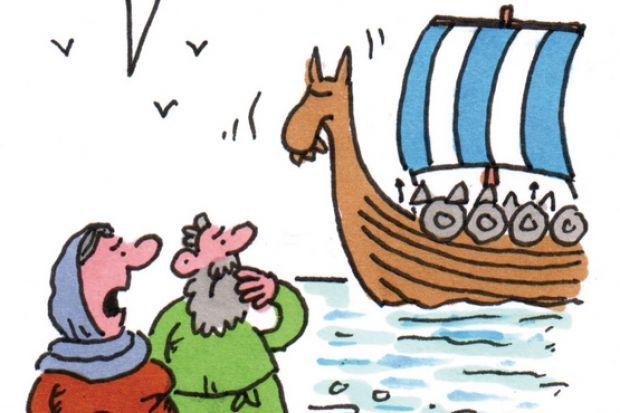Filming has started on a university-set comedy featuring a ruthless vice-chancellor, it was reported on 15 July. The Channel 4 series Campus, set at the fictional Kirke University, is due to be screened in early 2011 following a pilot last year. Among the writers of the series is Victoria Pile, who worked on Channel 4's hospital-based comedy Green Wing. Plots from the pilot episode included managers pressing academics to produce research with popular impact and an £800,000 accounting error. It would not take much - a thread about budget cuts, say, or a voluntary severance scheme - to make the series into social realism rather than comedy.
Vince Cable's speech advocating a system of income-linked graduate contributions in place of tuition fees grabbed the headlines, but it was dismissed as a "non-announcement" by David Lammy. Writing on 16 July, the shadow higher education minister said Lord Browne's review of fees and university funding had already been asked to consider a graduate tax and that the Liberal Democrats had "spent a decade rejecting all forms of graduate contribution as an article of faith". Claiming that Labour's achievements in higher education "cannot be easily dismissed", Mr Lammy twice noted the "blanket media coverage" won by Mr Cable, suggesting that adjusting to life on the opposition benches can be tough.
News: Business secretary moots 'graduate tax' to replace 'poll tax'
Opinion: When the levy breaks
Sir Andrew Cubie, fresh from backing the employers' proposals on pension reform in his role as independent chair of the Universities Superannuation Scheme's joint negotiating committee, has waded into the issue of tuition fees in Scotland. With the government there calling for a full debate on university funding but refusing to contemplate reintroducing fees, Sir Andrew said on 18 July that it would "not be rigorous" to dismiss them out of hand. If he had not already been crossed off the University and College Union's Christmas card list for his USS vote, he has now.
Stories about universities raising their entry requirements are fast becoming a staple in the national press. "Overrun universities lift entry bar to three As", The Sunday Times warned on 18 July, as it reported that "Leeds, Sheffield, Reading and Cardiff are among those telling candidates for some courses that their prospectuses are now wrong and that students will be required to get higher grades". It carried the tale of a University of Sheffield open day at which an "embarrassed lecturer" told would-be English students that the AAB offer for 2011 had risen. One attendee recalled: "He faffed around a bit and then said: 'Your grade requirements will be AAA.'"
Universities are "starting to look like immigration centres", according to the deputy editor of the London Evening Standard. Sarah Sands, writing in The Independent on Sunday on 18 July, told of the anxieties about university entrance expressed by parents at leavers' day "at a leading academic London school". "Even a decade ago, it would have been a given that their children would have places at top universities," Ms Sands said. The cause? "It is not 'political correctness' that is keeping out the traditional, university-going classes, but foreign students, who are keeping universities afloat with their top-whack fees." There was no word on how prospective students from less privileged backgrounds have been affected: Ms Sands is no doubt saving that for a future column.
The key figures in higher education are like animals tearing strips off each other, according to the vice-chancellor of Kingston University. Writing on 20 July, Sir Peter Scott discussed the "increasingly wild debate about who should pay for higher education". The "dysfunctional and cliquey 'mission groups' of universities fight like cats in a bag, effectively nullifying a united and coherent response". Meanwhile, Vince Cable and David Willetts are "scrapping to be top policy dog", promising to "take politicisation to new heights (or depths)". Sir Peter said universities were being forced into radical change while the justification - deficit reduction - was still contested and the debate on policy options was "superficial and precipitate".
Register to continue
Why register?
- Registration is free and only takes a moment
- Once registered, you can read 3 articles a month
- Sign up for our newsletter
Subscribe
Or subscribe for unlimited access to:
- Unlimited access to news, views, insights & reviews
- Digital editions
- Digital access to THE’s university and college rankings analysis
Already registered or a current subscriber?
